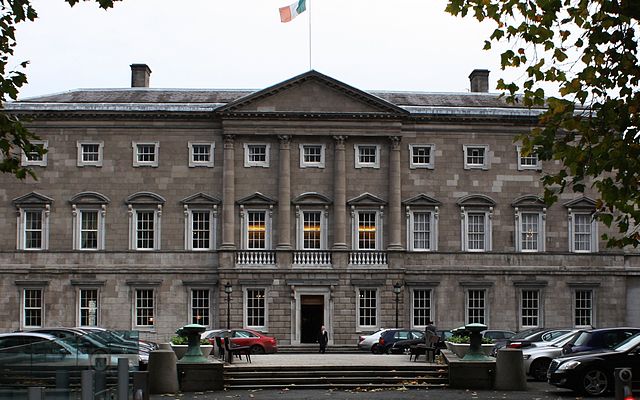The National Competitiveness Council, an economic advisory body to the government, has called for the introduction of an income-contingent loan scheme in Ireland to “avoid damaging Ireland’s competitiveness”.
In a press release, the council warn that the failure to tackle the “under-resourcing” of higher education poses considerable risks to Ireland’s economy, compared to other countries. To tackle this, they call for a “funding model for higher education that combines increased State funding alongside deferred payment of fees through income contingent loans”.
The council acknowledges that such a funding model would be “controversial”, but necessary to avoid a “negative impact” to the quality of Irish higher education.
They call for a “careful design” of such a model to reduce any “regressive effects” from the introduction of a loan scheme and call for an “appropriate and effective model of student support” to be included alongside it.
The council’s report also suggests that the contribution of employers to higher education is worth “revisiting”. The council emphasise, however, that any use of the National Training Fund to pay for higher education would need to “link educational outcomes to the skills needs of enterprise”.
Echoing the concerns of many people in the higher education sector, including university heads and trade unions, the council warn that “longer we postpone a decision about how best to address funding for higher education, the greater the negative impact on education quality”.
The National Competitiveness Council was established by the government in 1997 and since then has advised the Taoiseach and the government on how best to maintain and develop a competitive Irish economy. The call for a loan scheme comes as part of five priorities outlined in the group’s annual report on Ireland’s economic competitiveness, alongside recommendations to address the shortage of housing in Dublin and across the country, as well as a new funding model for public water services.
The council is one of the main economic advisory bodies of the state, with a number of government departments, including the Department of Education and Skills and the Department of the Taoiseach, attending the meetings of the council in an advisory capacity. Speaking in a press release, Prof Peter Clinch, Chairman of the National Competitiveness Council, warned that the failure to “put in place more solid foundations for growth” would undermine the competitiveness of Ireland’s economy.
“We have learnt to our cost the results of failing to consider fully the future consequences of actions and lack of actions. We must not do that again. Courageous decisions taken today can secure a sustainable, prosperous future for the Irish people”, he said. The 16-person council contains senior figures from industry, academia and trade unions, including the CEO of the employer group Ibec, Danny McCoy and the Chief Executive of Enterprise Ireland, Julie Sinnamon.
Last month, Ibec formally called for the introduction of an income-contingent during its presentation to the Oireachtas Education and Skills Committee. Over the last number of weeks, the committee has heard submissions from a number of groups, including Trinity College Dublin Students’ Union (TCDSU) and the Irish Universities Association (IUA), on what a new funding model for Irish higher education should look like.
Following the publication of the report of the government’s higher education funding working group in July, which outlined three options for the funding of higher education, the Minister for Education and Skills, Richard Bruton, has instructed the committee to develop a “consensus” around a new funding model for the sector.
Responding to a question from The University Times at an event hosted by Trinity Young Fine Gael in November, Bruton said that he hoped a proposal for a new funding model could be ready to be brought to the Oireachtas before the next budget, appearing to contradict the timeline set out in the Action Plan for Education.
The recommendation of an income-contingent loan scheme by the National Competitiveness Council joins that of the IUA and the Irish Farmers Association, who both called for the introduction of a loan scheme as part of their submission to the Oireachtas Education and Skills Committee.







